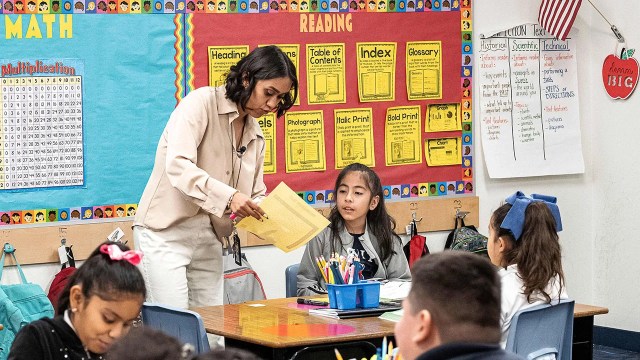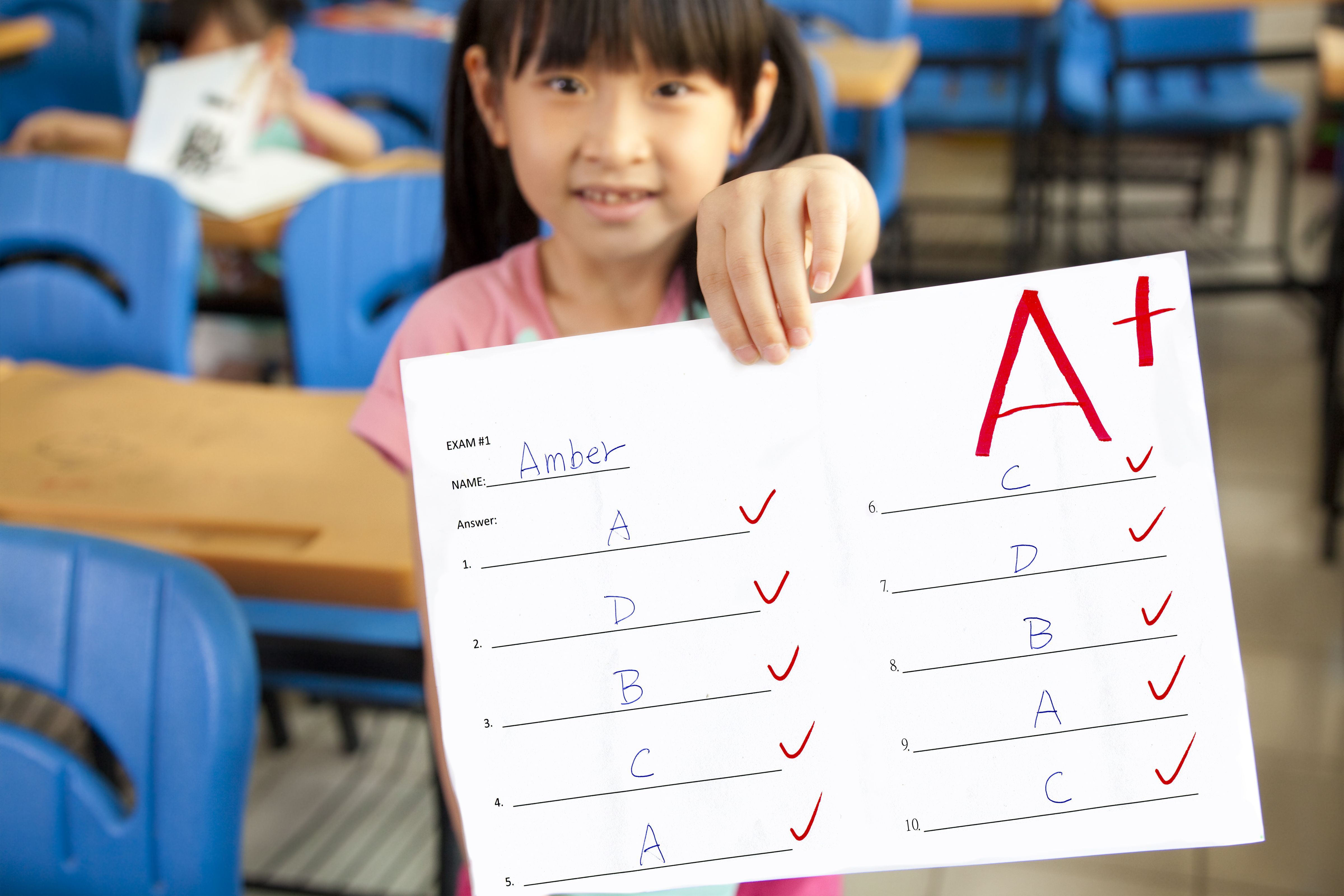Why a Grade School equips students for academic excellence
Exploring the Conveniences of Kindergarten Programs: A Comprehensive Guide to Very Early Education And Learning
Kindergarten programs play a pivotal role in forming a child's very early instructional experience. They offer an organized setting where young learners can develop crucial social abilities, emotional strength, and cognitive capacities. These foundational skills are crucial as youngsters move into more formal education. Recognizing exactly how these programs add to a child's growth exposes much regarding their long-term academic trajectory. What certain advantages do these early experiences provide, and just how do they affect a youngster's future?
The Value of Social Abilities Growth
While many elements of early education concentrate on scholastic abilities, the development of social abilities in preschool programs is just as vital. Social skills include the capacity to interact successfully, team up with peers, and browse social circumstances, all of which are important for a kid's overall advancement. In preschool, kids discover to share, take turns, and deal with conflicts, cultivating a sense of community and belonging. These experiences make it possible for young learners to create relationships and develop empathy, preparing for favorable connections in the future.
Teachers play a crucial role in helping with social ability development through structured activities and guided communications. Via group projects and play, kids exercise vital abilities such as listening, bargaining, and recognizing diverse perspectives. Additionally, these interactions help kids develop confidence and self-esteem, crucial components for their personal and academic trips. On the whole, nurturing social abilities in preschool improves children's experiences and prepares them for the complexities of social life past college.

Structure Emotional Resilience in Youthful Learners
Building psychological resilience in young students is fundamental to their overall wellness and success in various elements of life. Kindergarten programs give an organized setting where youngsters can learn to navigate their feelings properly. With assisted communications and activities, instructors assist children identify and express their feelings, fostering a sense of self-awareness.
These programs usually consist of strategies for dealing with challenges, such as analytical activities and role-playing scenarios that prepare kids for real-life situations. By encouraging participation and compassion, young learners establish solid social connections, which are essential for psychological assistance.
Educators play an essential duty in modeling strength by demonstrating just how to manage tension and hardship. As kids observe these actions, they internalize important coping systems, equipping them to handle future emotional troubles with better simplicity. On the whole, supporting psychological durability in early education lays a strong foundation for long-lasting mental wellness and adaptability.
Enhancing Cognitive Capabilities Through Structured Understanding
As kids take part in structured knowing experiences within kindergarten programs, their cognitive capacities are significantly boosted. These programs introduce age-appropriate tasks that boost vital thinking and problem-solving skills. As an example, hands-on activities such as problems and foundation promote spatial understanding and rational thinking.
Interactive narration and group conversations foster language advancement, increasing vocabulary and comprehension. With structured routines, kids learn to adhere to instructions, improving their executive functioning abilities, which are essential for future academic success.
Social communications within these programs also play a significant function, as youngsters learn to collaborate and interact efficiently, more increasing cognitive growth.
In addition, integrating play-based understanding enables children to explore principles in an enjoyable and engaging method, strengthening their understanding and retention of expertise. Overall, structured learning in kindergarten lays a solid structure for cognitive advancement, preparing children for the obstacles of college.
Promoting a Love for Lifelong Knowing

Furthermore, favorable communications with peers and instructors add to an environment where learning is seen as satisfying and fulfilling. This encouraging environment assists infuse intrinsic inspiration and reinforces the idea that education and learning is a constant trip rather than a location.
As children find their staminas and passions, they are more probable to pursue knowledge past the class, laying the foundation for a lifelong dedication to understanding. Inevitably, kindergarten programs play a necessary duty in forming passionate learners that embrace academic possibilities throughout their lives.
Preparing for Future Academic Success
While fundamental abilities are vital for early learners, kindergarten programs additionally play a crucial function in preparing youngsters for future scholastic success. These programs introduce essential concepts such as literacy and numeracy, ensuring that youngsters create the cognitive capacities required for even more sophisticated understanding. By involving in organized tasks, trainees boost vital thinking and analytical skills, laying a strong foundation for their instructional journey.
Kindergarten promotes social-emotional growth, allowing kids to browse collaborative tasks and build relationships with peers. This collective atmosphere imparts a feeling of belonging and boosts confidence, which is necessary for scholastic perseverance.
In addition, direct exposure to varied learning experiences in kindergarten grows flexibility, furnishing kids to take on numerous topics and difficulties in succeeding grades (Kindergarten). Ultimately, by offering a versatile very early education and learning, kindergarten programs ensure that kids are not just ready for initial quality yet additionally planned for continued scholastic success throughout their academic careers
Frequently Asked Concerns
What Age Is Suitable for Starting Preschool Programs?
The suitable age for starting preschool programs is commonly in between five and 6 years old. This age permits youngsters to establish important social, psychological, and cognitive abilities, preparing them for future scholastic success and individual growth.
Just how Do I Select the Right Preschool Program for My Kid?
To select the right preschool program, one should think about factors such as educational program, instructor credentials, class size, location, and the school's philosophy. Observing the environment and gathering comments from other parents can also be helpful.
Are There Any Type Of State Requirements for Kindergarten Registration?
Many states have certain needs for kindergarten registration, consisting of age limitations and documentation such as birth certifications or evidence of residency (Private School). Moms and dads ought to consult their neighborhood education and learning authority to recognize the exact requirements in their location
What Should Moms and dads Expect Throughout a Normal Kindergarten Day?
Throughout a normal preschool day, moms and dads can anticipate organized tasks including circle time, innovative play, basic scholastic lessons, treat breaks, and social interaction, all designed to promote discovering and development in a nurturing atmosphere.
Just How Can Parents Support Discovering in the house in Enhancement to Preschool?
Parents can Grade School sustain finding out in the house by involving in normal reading, integrating instructional video games, developing a constant routine, motivating interest via inquiries, and producing a positive, nurturing environment that cultivates exploration and creativity.
Kindergarten programs play a pivotal role in forming a youngster's early instructional experience. Kindergarten programs supply an organized environment where youngsters can find out to browse their emotions efficiently. As children involve in structured knowing experiences within preschool programs, their cognitive abilities are significantly boosted. By appealing kids in varied activities-- such as narration, hands-on experiments, and collaborative tasks-- preschool programs cultivate inquisitiveness and exploration. While foundational skills are vital for early learners, preschool programs likewise play a crucial role in preparing kids for future academic success.